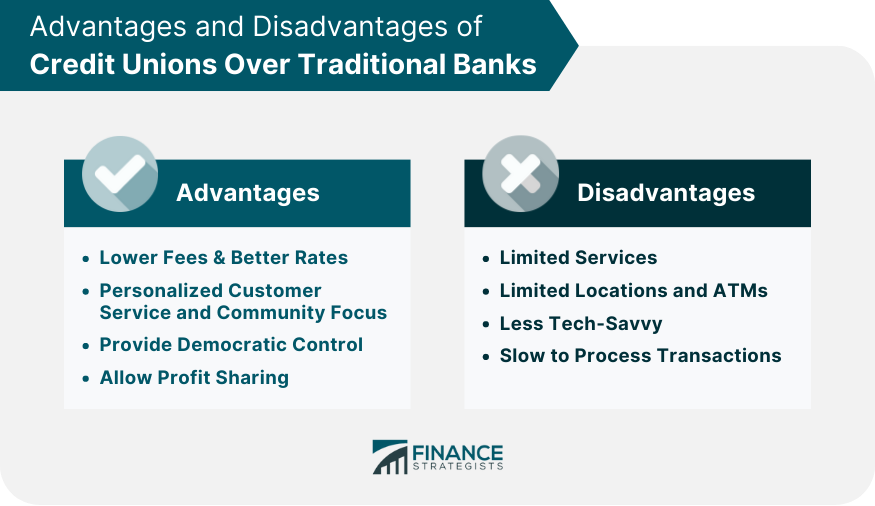Hybrid Line of Credit: Flexible Funding Options from Your Wyoming Credit Union
Wiki Article
The Ultimate Guide to Understanding Lending Institution

Credit history unions stand as distinct monetary entities, rooted in concepts of shared assistance and member-driven operations. Past their fundamental values, recognizing the intricate functions of credit rating unions entails a deeper exploration. Unraveling the complexities of subscription qualification, the evolution of solutions offered, and the unique benefits they bring requires an extensive assessment. As we browse through the complexities of cooperative credit union, an informative journey awaits to drop light on these member-focused establishments and just how they vary from traditional financial institutions.
What Are Lending Institution?
Cooperative credit union are member-owned financial institutions that offer a range of banking services to their participants. Unlike conventional financial institutions, lending institution operate as not-for-profit organizations, indicating their key emphasis is on serving their members as opposed to maximizing profits. Participants of a lending institution normally share a typical bond, such as benefiting the same company, belonging to the very same neighborhood, or belonging to the very same organization.One of the essential advantages of cooperative credit union is that they frequently use greater rate of interest prices on savings accounts and lower rate of interest on finances contrasted to banks. Wyoming Credit Union. This is since debt unions are structured to benefit their members directly, allowing them to pass on their earnings in the form of much better rates and fewer charges. Furthermore, lending institution are known for their personalized customer care, as they focus on constructing connections with their participants to comprehend their special monetary needs and goals
Background and Advancement of Credit History Unions
The origins of member-owned financial cooperatives, recognized today as lending institution, trace back to a time when areas sought choices to conventional banking establishments. The concept of credit report unions come from the 19th century in Europe, with Friedrich Wilhelm Raiffeisen usually credited as the leader of the participating banking activity. Raiffeisen started the first acknowledged lending institution in Germany in the mid-1800s, emphasizing neighborhood assistance and self-help concepts.The development of cooperative credit union proceeded in The United States and Canada, where Alphonse Desjardins developed the very first cooperative credit union in Canada in 1900. Shortly after, in 1909, the initial U.S. debt union was developed in New Hampshire by a team of Franco-American immigrants. These early cooperative credit union run on the basic principles of common assistance, autonomous control, and participant ownership.
With time, lending institution have grown in popularity worldwide as a result of their not-for-profit framework, concentrate on serving participants, and providing competitive financial products and solutions. Today, lending institution play an important function in the economic sector, providing community-oriented and accessible banking choices for individuals and services alike.

Membership and Qualification Criteria
Subscription at a lending institution is usually limited to individuals meeting specific qualification criteria based upon the institution's beginning principles and regulative needs. These requirements frequently consist of aspects such as geographic location, work status, subscription in specific organizations, or association with certain groups. Cooperative credit union are known for their community-oriented strategy, which is mirrored in their subscription requirements. Hybrid Line of Credit. Some credit history unions might just official source serve individuals who live or function in a certain location, while others might be tailored to workers of a particular company or participants of a particular organization.Furthermore, lending institution are structured as not-for-profit organizations, indicating that their primary objective is to serve their members instead of generate earnings for investors. This concentrate on member solution commonly equates right into even more individualized interest, lower fees, and competitive rates of interest on financings and financial savings accounts. By meeting the qualification criteria and ending up being a participant of a credit rating union, people can access a series of monetary items and services tailored to their details needs.
Solutions and Products Supplied
One of the crucial aspects that sets cooperative credit union apart is the varied variety of economic services and products they supply to their members. Cooperative credit union generally provide typical banking solutions such as financial savings and checking accounts, lendings, and charge card. Members can additionally gain from investment services, including retirement accounts and financial planning assistance. Numerous cooperative credit union provide competitive interest rates on interest-bearing accounts and car loans, in addition to lower charges contrasted to typical banks.Additionally, credit scores unions commonly give practical online and mobile banking choices for members to conveniently manage their funds. They might supply rewards such as shared branching, enabling participants to access their accounts at various other cooperative credit union across the nation. Some cooperative credit union also supply insurance items like home, life, and look at here automobile insurance coverage to aid members protect their properties and loved ones.

Benefits of Banking With Cooperative Credit Union
When thinking about monetary organizations, discovering the benefits of financial with lending institution discloses distinct advantages for members seeking personalized service and affordable rates. One significant advantage of lending institution is their focus on customized customer support. Unlike large banks, credit unions are member-owned and prioritize building solid relationships with their members. This suggests that lending institution staff usually have a much deeper understanding of their participants' financial demands and can use tailored services to help them achieve their goals. Additionally, cooperative credit union are recognized for supplying competitive interest rates on cost savings and financings accounts. Because they are not-for-profit companies, cooperative credit union can often give reduced financing prices, higher financial savings rates, and lower fees contrasted to typical financial institutions. This can cause considerable expense financial savings for participants gradually. In general, banking with a cooperative credit union can give a much more individualized, affordable, and member-centric financial experience.Conclusion
In conclusion, credit report unions stand out as member-owned economic institutions that focus on offering their participants over maximizing earnings. With beginnings dating back to 19th century Europe, credit report unions follow concepts of common help and member possession.
Credit score unions are member-owned financial institutions that use a variety of banking services to their participants. The idea of credit score unions come go to this web-site from in the 19th century in Europe, with Friedrich Wilhelm Raiffeisen commonly credited as the pioneer of the participating banking movement.The evolution of credit scores unions continued in North America, where Alphonse Desjardins developed the first credit history union in Canada in 1900. Debt unions normally give traditional banking services such as cost savings and checking accounts, financings, and credit report cards.When thinking about economic institutions, discovering the benefits of financial with credit score unions discloses special benefits for participants seeking individualized solution and affordable prices.
Report this wiki page